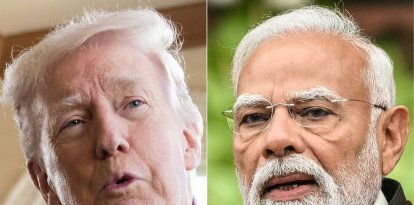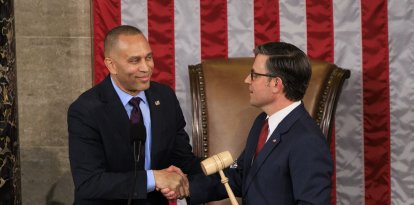Zohran Mamdani identified himself as 'black' on an application to Columbia, where his father worked
The Democratic candidate for mayor of New York admitted to completing the application that way, but defended himself by saying he was trying to reflect the complexity of his background.

Zohran Mamdani identified himself as "black" or "African-American" on an application for Columbia
Zohran Mamdani, the socialist who won the Democratic nomination for mayor of New York, is once again embroiled in controversy after it came to light that in a 2009 Columbia University application, he identified himself as a "black" or "African-American" person, despite the fact that biologically he is not of that race. He does not consider himself black, but South Asian.
In fact, Mamdani campaigned actively, promoting his identity as a Muslim immigrant of South Asian descent, becoming the heavy favorite to win the NYC mayoralty.
According to The New York Times, the application information was obtained through a hack of Columbia's admissions records.
According to the data, Mamdani, who was then still a high school student, checked the boxes on his form for "Asian" and, at the same time, "black or African-American," which at the time was an advantage in the admissions system as the university implemented race-based affirmative action policies.
When questioned about the application, Mamdani, who still serves as a state legislator for Queens, acknowledged that he filled out the form that way, but claimed he did so to try to reflect the complexity of his background since there were no boxes for Indo-Ugandan people.
"Most college applications don’t have a box for Indian-Ugandans, so I checked multiple boxes trying to capture the fullness of my background," Mamdani said. "Even though these boxes are constraining, I wanted my college application to reflect who I was."
When asked about his race and origins, Mamdani noted that he considers himself "an American who was born in Africa," but not a black person.
The state lawmaker's naturalization process ended in 2018. Currently, the Democrat is not only an American, but also a Ugandan.
Mamdani, born in Uganda in 1991, spent part of his childhood in Africa before moving to New York. His parents are of Indian origin and, particularly, his father, Mahmood Mamdani, is a professor at Columbia, the same university his son tried to get into.
Ultimately, despite being listed on his application as a broadly diverse person, Mamdani was not admitted to Columbia and studied at Bowdoin College in Maine.
The Democrat said the college applications were the only times he remembers describing himself as a black person, the NYT reported.
The case has unleashed hundreds of criticisms on social media against Mamdani, whom they point to as having opportunistically identified himself as black to gain an advantage in the admissions process, while in his political career he presents himself as South Asian and Muslim.
"Mamdani claimed to be 'Black' or 'African American' when he applied to Columbia. Mamdani was born in Uganda & lived there a few years, but he is very much South Asian & very much not black. Mamdani claims he wasn’t trying to give himself an advantage because Mamdani is a liar," researcher and author Jerry Dunleavy IV of Just the News wrote on X.
Mamdani claimed to be “Black” or “African American” when he applied to Columbia. Mamdani was born in Uganda & lived there a few years, but he is very much South Asian & very much not black. Mamdani claims he wasn’t trying to give himself an advantage because Mamdani is a liar. pic.twitter.com/cSxF9c2mvI
— Jerry Dunleavy IV 🇺🇸 (@JerryDunleavy) July 3, 2025
Gerard Kassar, chairman of the state Conservative Party, told The New York Post that Mamdani's application constitutes a fraud on New Yorkers.
"Mamdani has got a lot of explaining to do. This is part of the fraud he has perpetrated on New Yorkers throughout the primary campaign," Kassar said. "His focus was to get admitted to Columbia on affirmative action. It just didn’t work out. He was trying to get into a school by lying about his racial background. Race is a scientific specification, not the country you’re from."
The cyberattack came against a backdrop in which race-based admissions policies are in the spotlight following a ban issued by the Supreme Court in 2023. It also comes at a time of full political ascendancy for Mamdani, who went from a complete unknown to a national figure in a matter of months.

























